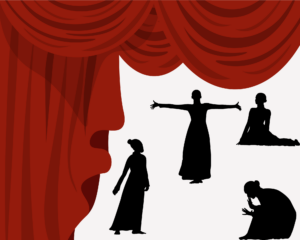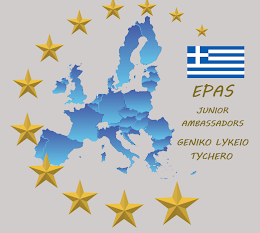
ALEXANDER THE GREAT
Alexander III of Macedon (20/21 July 356 – 10/11 June 323 BC), was commonly known as Alexander the Great. He was a king of Macedon which was a state in northern ancient Greece. He was born in Pella in 356 BC and he was the son of the king of Macedon, Philip II, and his fourth wife, Olympias who was a princess of Epirus. His parents were very concerned about his education that’s why one of Alexander’s tutors was Aristotle who taught him from the age of 13 until the age of 16. During these years, Aristotle gave Alexander training in rhetoric and literature and he made him love science, medicine and philosophy. Alexander had a horse called Bucephalus. It was an unruly animal but at the age of 12 he managed to tame it and he rode it in all of his major battles.
![Alexander_&_Bucephalus_by_John_Steell[1]](https://blogs.sch.gr/lyktycher/files/2014/04/Alexander__Bucephalus_by_John_Steell1-1024x682.jpg) Alexander taming Bucephalus, Edinburgh
Alexander taming Bucephalus, Edinburgh
Alexander succeeded his father, Philip II of Macedon, to the throne in 336 BC after Philip was assassinated. After Philip’s death, Alexander inherited a strong kingdom and an experienced army. In 334BC, he began a series of campaigns that lasted ten years. One of his most important battles was that of Granicus in 334 BC where he defeated the Persians. This battle contributed later to the fall of the Persian Empire. Other important battles and campaigns were the battle of Issus in the autumn of 333 BC, the conquest of Phoenicia and Egypt and the battle of Gaugamela in 331 BC. During his campaigns the Greek civilization became well-known to the nations that he conquered because the Greek cities that he founded were very important for the development of trade and transport. By the age of thirty, he had created one of the largest empires of the ancient world which was stretching from the Ionian Sea to the Himalayas. He was undefeated in battle and is considered one of history’s most successful commanders.
![Battle_of_Issus[1]](https://blogs.sch.gr/lyktycher/files/2014/04/Battle_of_Issus1.jpg) Alexander battling Darius at the Battle of Issus (Naples National Archaeological Museum).
Alexander battling Darius at the Battle of Issus (Naples National Archaeological Museum).
Alexander had great charisma and force of personality, characteristics which made him a great leader. He made decisions spontaneously but he was logical, too. He had a great desire for knowledge, a love for philosophy and he liked reading a lot. In addition, Alexander was intelligent and quick to learn. A great disadvantage of him was that he couldn’t control his desire for alcohol, although he could limit other desires.
On either 10 or 11 June 323 BC, Alexander died in Babylon, at the age of 33. He developed a fever which worsened until he was unable to speak. His soldiers, who were anxious about his health, went past him as he silently waved at them.
![Alexander_and_Aristotle[1]](https://blogs.sch.gr/lyktycher/files/2014/04/Alexander_and_Aristotle1.jpg)
Alexander and his tutor Aristotle.
References:
http://en.wikipedia.org/wiki/Alexander_the_Great
http://www.historyofmacedonia.org/AncientMacedonia/AlexandertheGreat.html
Νέα εγκυκλοπαίδεια, Μαλλιάρης παιδεία







Αφήστε μια απάντηση
Για να σχολιάσετε πρέπει να συνδεθείτε.